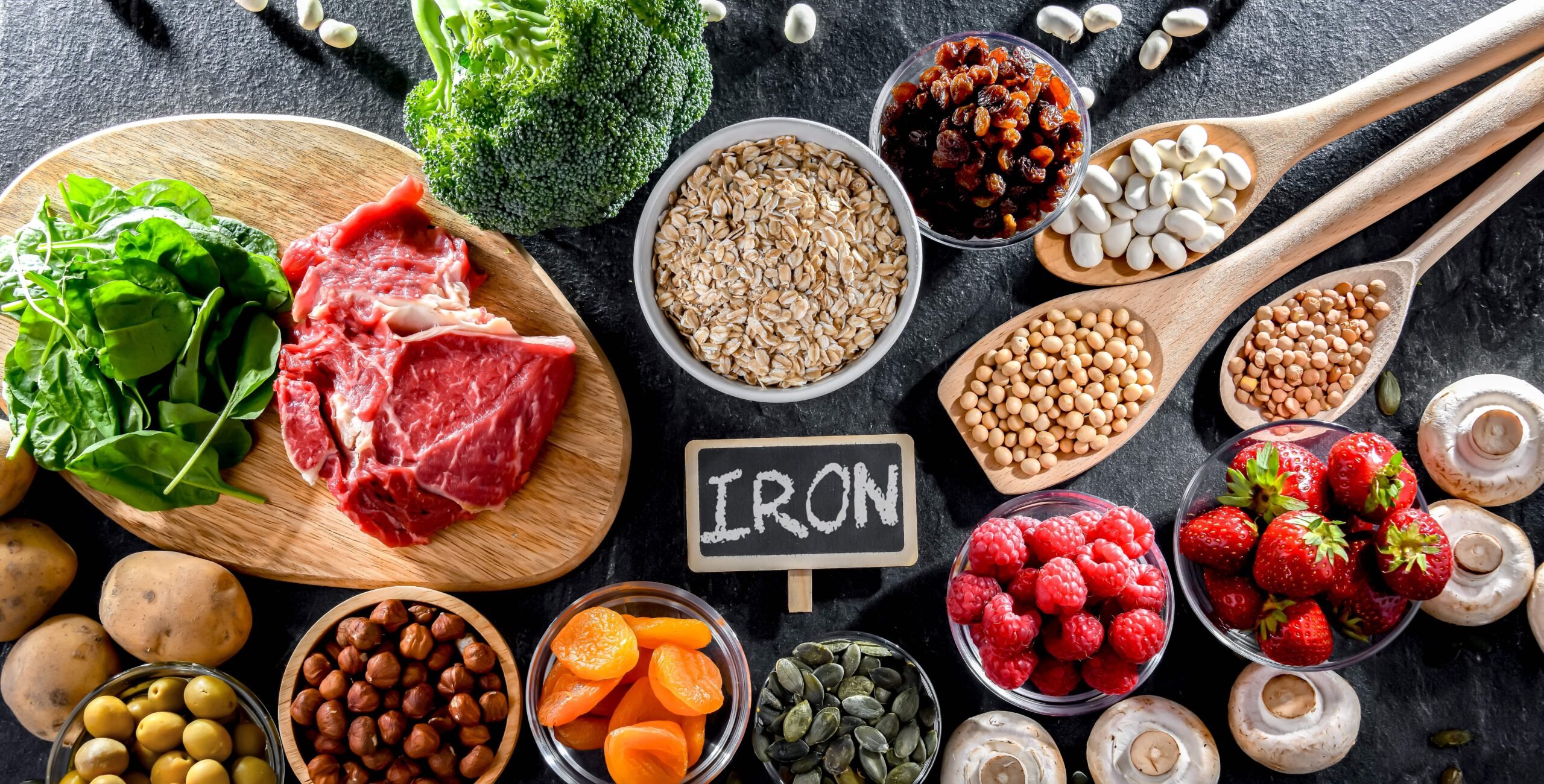Iron deficiency is one of the most common nutritional deficiencies worldwide, yet it often goes unnoticed. At Sloane Street Surgery, we often see patients struggling with unexplained fatigue, low energy levels and other symptoms that can be traced back to low iron levels. We thought our patients might be interested to learn about the signs of iron deficiency, who is most at risk and how to prevent and treat it.
Why is iron important?
Iron is a crucial mineral that helps your body produce haemoglobin, the protein in red blood cells that carries oxygen around your body. Without enough iron, your body struggles to make sufficient healthy red blood cells, leading to iron deficiency anaemia.
What are the symptoms of iron deficiency?
Iron deficiency can develop slowly and symptoms may be subtle at first. Common signs include:
- Persistent tiredness or fatigue
- Pale skin
- Shortness of breath
- Dizziness or light-headedness
- Cold hands and feet
- Brittle nails and dry hair
- Unusual cravings for non-food items (like ice or clay)
- Headaches
- Difficulty concentrating
If you experience any of these symptoms, it is worth discussing them with your doctor, as iron deficiency can often be overlooked.
Who is most at risk?
Certain groups of people are more prone to developing iron deficiency, including:
- Women of childbearing age, due to menstrual blood loss
- Pregnant women, as during pregnancy, the body needs more iron to support the growing baby
- Vegetarians and vegans, because plant-based diets may not provide enough easily absorbed iron
- People with digestive conditions such as coeliac disease or Crohn’s disease, which can affect how the body absorbs iron.
- People who frequently donate blood.
- Athletes, as persistent intense exercise can increase iron needs.
How can iron deficiency be prevented and treated?
The good news is that iron deficiency is usually easy to prevent and straightforward to treat with dietary changes and, if needed, supplementation.
Iron-rich foods to include in your diet:
- Animal sources (heme iron, which is more easily absorbed): Red meat, liver, poultry, and fish
- Plant-based sources (non-heme iron, which is less easily absorbed): Lentils, beans, tofu, spinach, fortified cereals, nuts, and seeds
It is worth remembering that foods rich in vitamin C enhance iron absorption so should be eaten alongside iron rich food. Vitamin C-rich foods include citrus fruits, kiwi fruit, bell peppers, tomatoes and strawberries.
For those who struggle to get enough iron through diet alone, supplements may be recommended. However, taking too much iron can cause side effects, so always consult your GP before starting supplements.
Which type of oral iron supplements are recommended?
There are various types of iron supplements available, but some are more effective and better tolerated than others.
Recommended iron supplements:
- Ferrous Sulphate is the most commonly prescribed iron supplement, providing a high dose of iron but more likely to cause digestive side effects.
- Ferrous Fumarate. This Contains a similar amount of iron as ferrous sulphate but may be slightly easier on the stomach.
- Ferrous Gluconate contains a lower dose of iron and is often better tolerated by people with sensitive stomachs.
- Iron Bisglycinate (Chelated Iron). This is a gentler option that is better absorbed with fewer digestive side effects.
- Liquid Iron (e.g. Spatone, Floradix). This is a good option for those who struggle with tablets or side effects but usually contains lower iron levels.
What are the potential side effects of iron supplements?
While iron supplements are effective, they can cause side effects, especially when taken in higher doses. The most common side effects include constipation, nausea, stomach cramps and dark stools (which is harmless). If side effects are bothersome, switching to a lower-dose formulation, taking the supplement with food, or trying a gentler option like iron bisglycinate may help. If you experience severe side effects or symptoms such as vomiting or severe abdominal pain, consult your GP.
How long do iron supplements take to work?
- Most people start to feel better within 2 to 4 weeks of taking iron supplements regularly.
- A significant improvement in iron stores can take 2 to 3 months, depending on the severity of the deficiency.
- To fully replenish iron stores, supplements should often be taken for at least 3 to 6 months, even if symptoms improve sooner.
To improve absorption, it is recommended to take iron supplements:
- On an empty stomach (but they can be taken with food if stomach upset occurs)
- With vitamin C (e.g. orange juice) to enhance absorption
Avoid taking iron with tea, coffee, dairy or calcium supplements, as these can reduce absorption.
Iron infusions: when are they needed?
In some cases, oral iron supplements may not be effective or well-tolerated. This is where intravenous (IV) iron infusions can be beneficial.
Who might need an iron infusion?
Iron infusions are typically recommended for individuals who:
- Have severe iron deficiency or iron deficiency anaemia
- Cannot tolerate oral iron due to digestive side effects
- Have conditions affecting iron absorption for example inflammatory bowel disease or coeliac disease
- Need a rapid increase in iron levels (e.g. pregnancy, post-surgery or after significant blood loss).
What to expect during an iron infusion
An iron infusion is a procedure where iron is delivered directly into the bloodstream through an IV drip. It usually takes between 30 minutes to a few hours, depending on the type of iron used. Some people may need multiple sessions.
While generally safe, possible side effects include temporary flu-like symptoms, mild headache or dizziness or a metallic taste in the mouth. It is possible (although rare) to have an allergic reaction to an iron infusion, so we strongly recommend having iron infusions in a hospital environment.
Most patients feel an improvement in symptoms within a few days to a couple of weeks after the infusion.
When should you see a doctor?
If you suspect you may be iron deficient, a simple blood test can confirm your iron levels. Left untreated, iron deficiency can lead to complications such as severe anaemia, heart problems or difficulties during pregnancy.
At Sloane Street Surgery, we offer tailored advice, blood tests, and treatment plans to help you maintain optimal health. If you have any concerns about iron deficiency or any other health issue, please do book an appointment using this link or by giving us a call on 0207 245 9333.
About the author

MBBS BSc MRCGP DFSRH
“We have the luxury of time, both to spend with our patients in consultation and afterwards, to ensure their medical needs are met quickly and efficiently and by the right person”.
Having worked in multiple specialities across London hospitals, my particular interests now lie in paediatric and teenage care, women’s health, acute medicine, disease prevention and psychiatry.
I enjoy all aspects of General Practice but particularly looking after whole families: from newborns to grandparents, helping people when they need it most, quickly, efficiently, and kindly.



